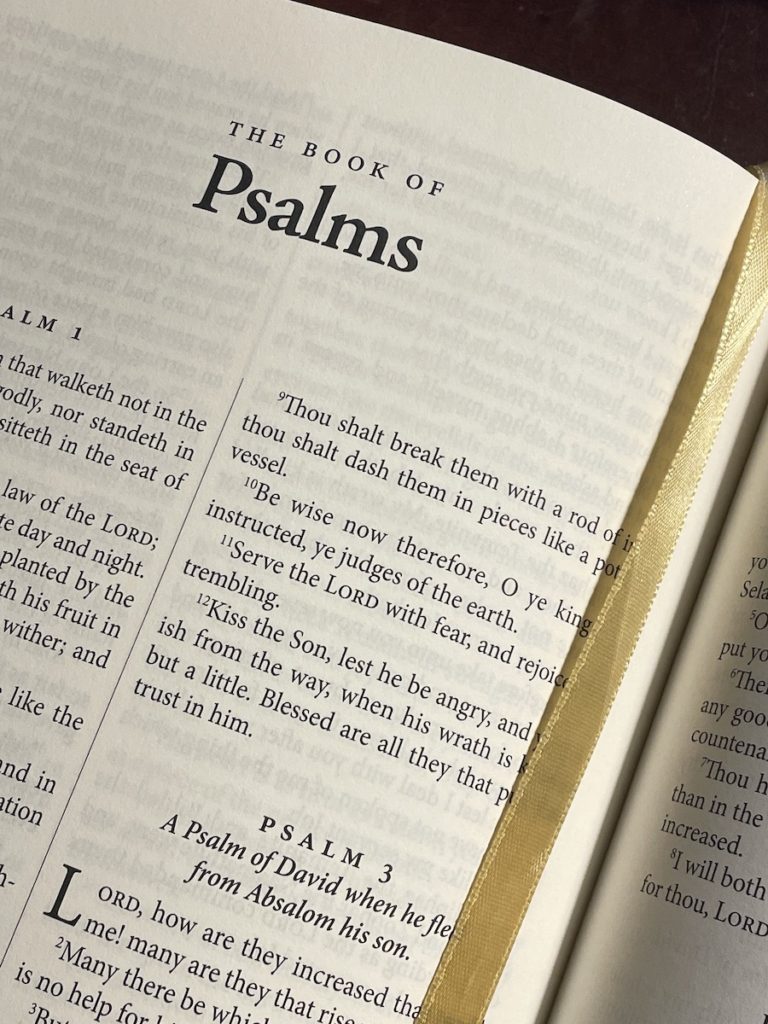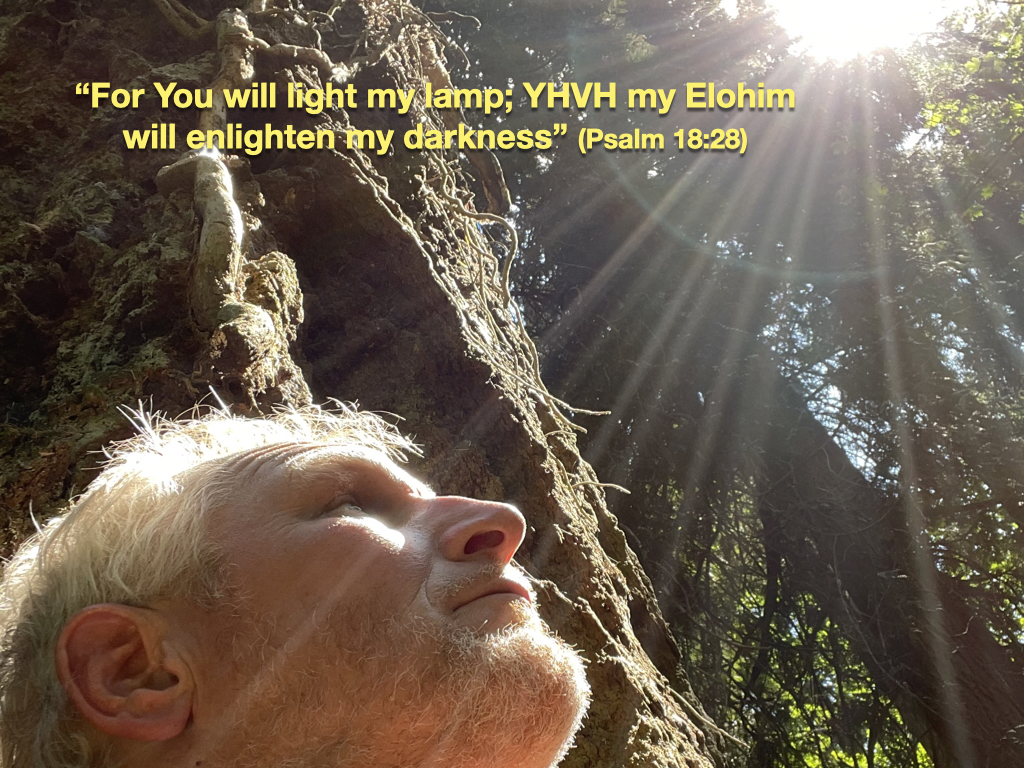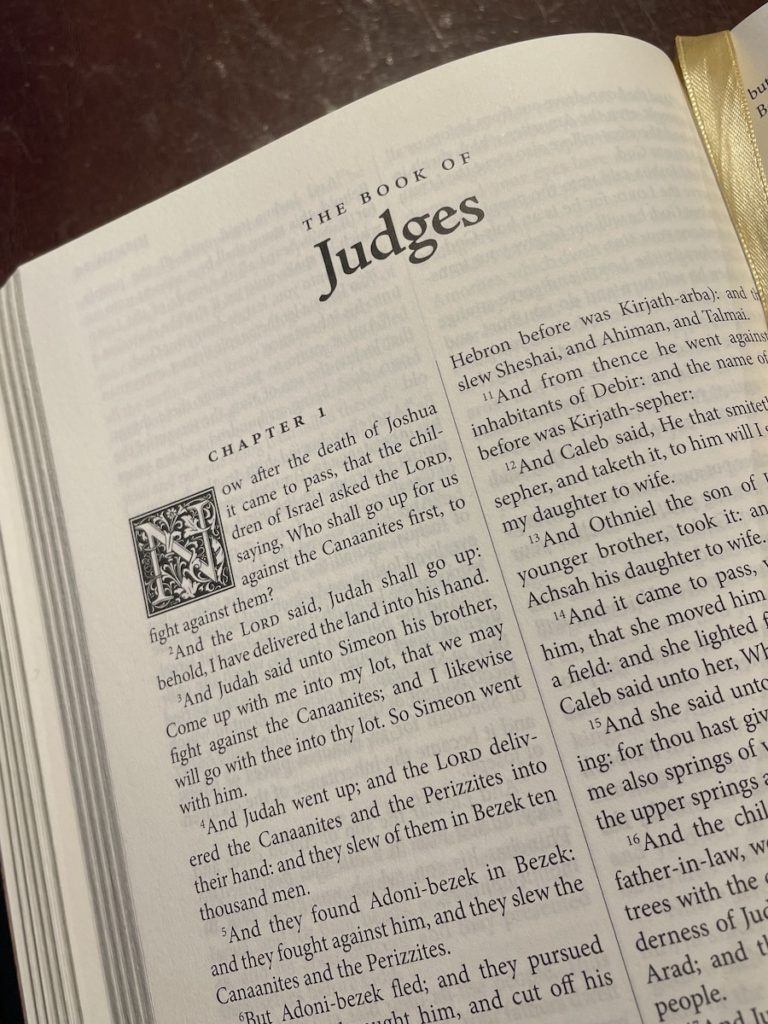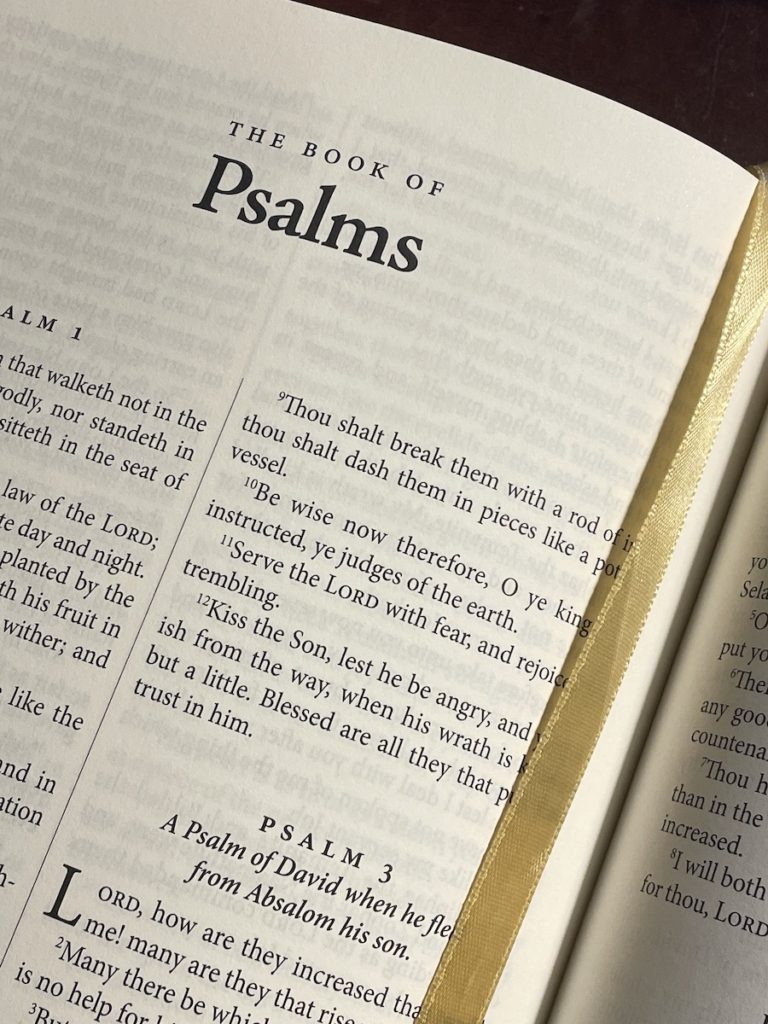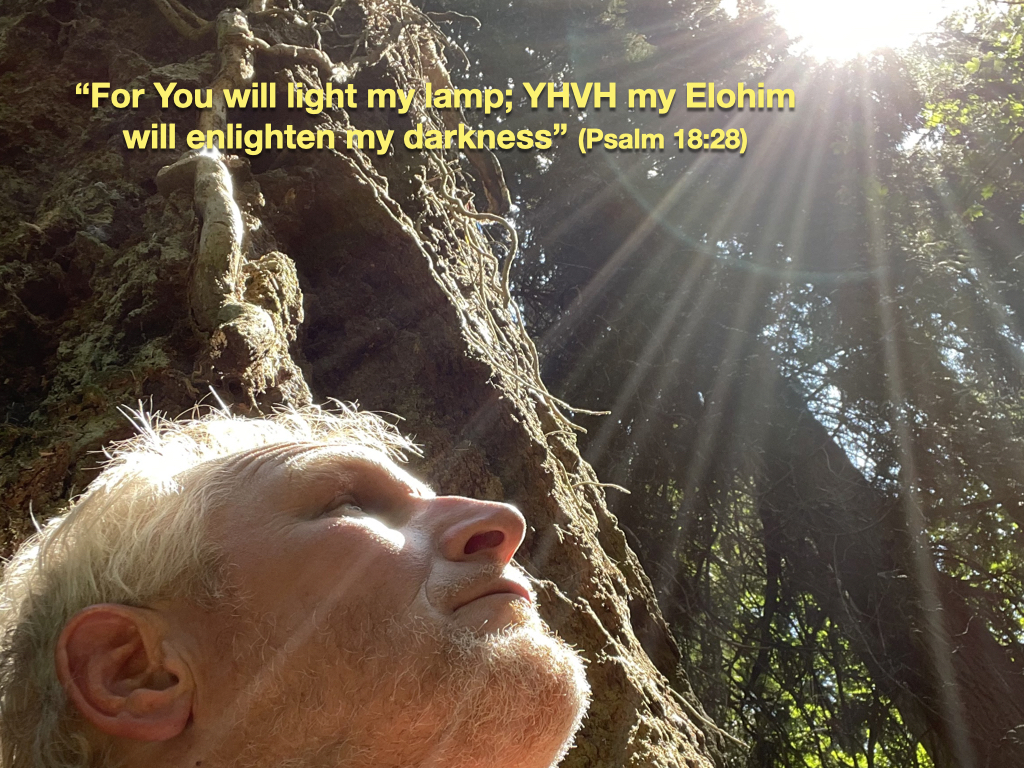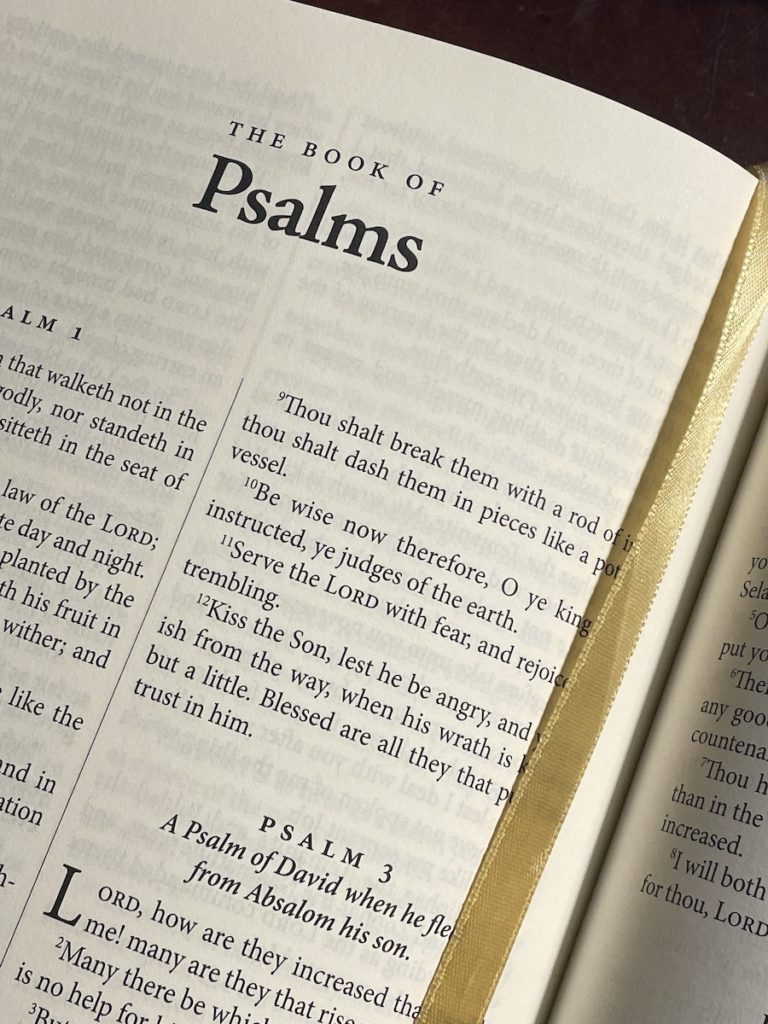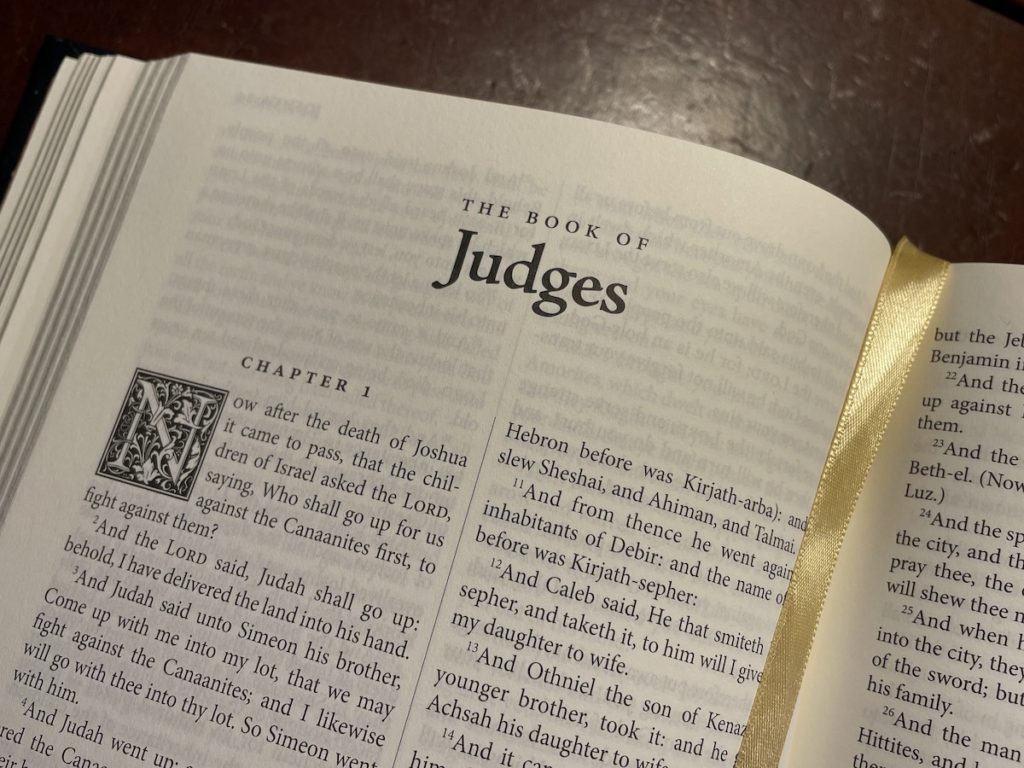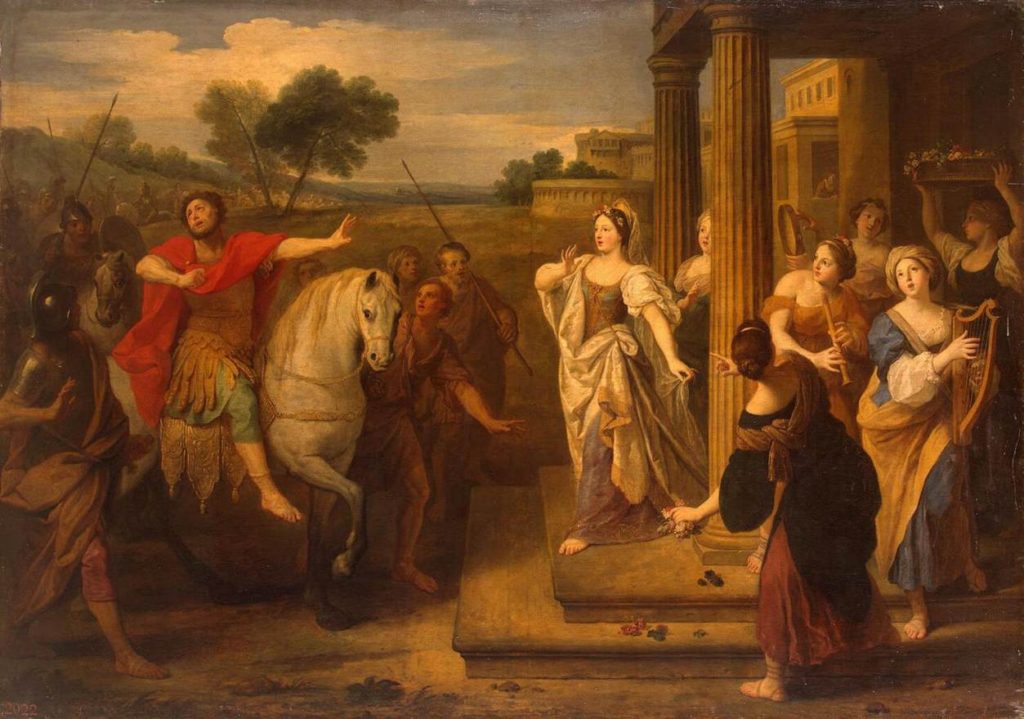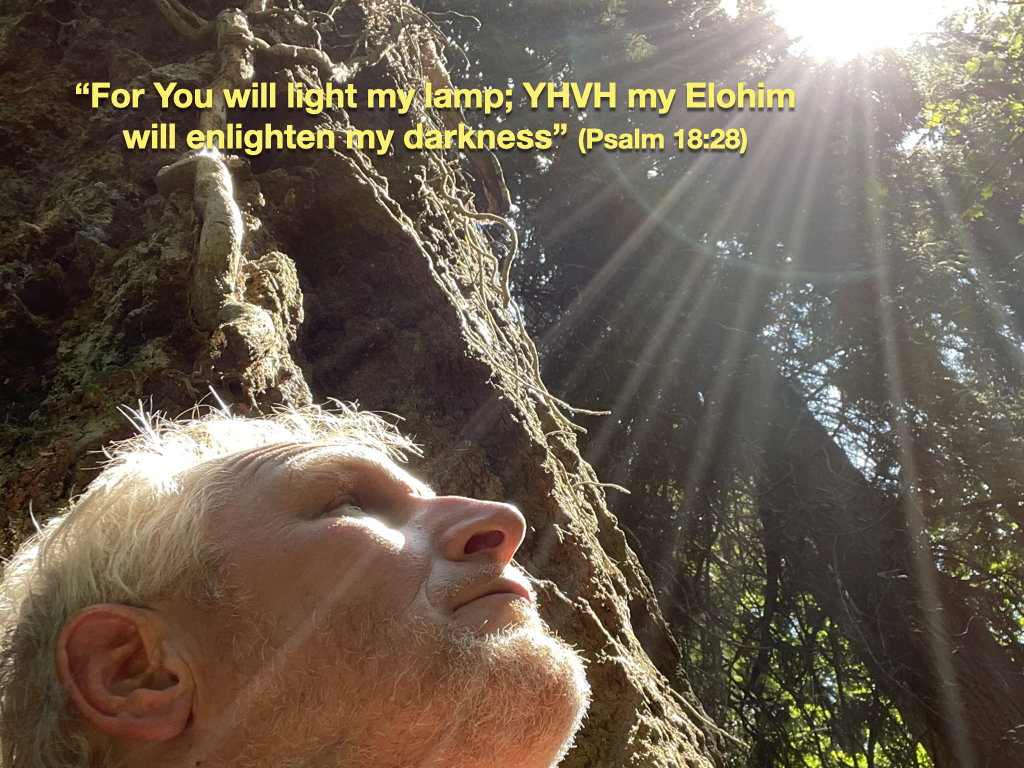
1 Samuel 1
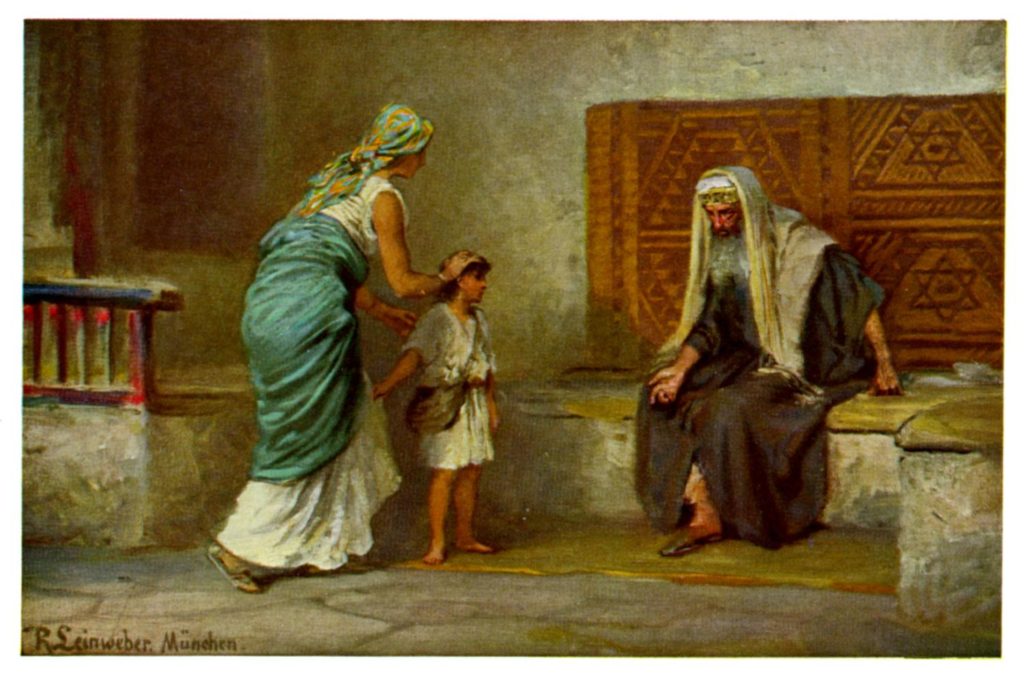
1 Samuel 1:1, An Ephraimite. Although Samuel was born in the territory of Ephraim, he was actually a Levite (1 Chr 6:1, 16, 28). This is because the Levites had no distinct territory of their own but were scattered throughout the land of Israel, so they would teach the Israelites the Torah, lead in religious services, act as judges and fulfill other ecclesiastical duties.
1 Samuel 1:11, No razor shall come upon his head. To this phrase, the LXX and Dead Sea Scrolls add “he shall drink no wine or strong drink.” This means that Hannah vowed to consecrate Samuel to be a Nazirite to be holy or set apart unto YHVH (Num 6:8, see vv. 1–21 for context). Thus, Samuel was both a Levite and Nazirite.
1 Samuel 1:24, House of YHVH in Shiloh. The Tabernacle of Moses (also called “the temple of YHVH”, see v. 9) remained in Shiloh for more than 350 years before the Temple of Solomon was built in Jerusalem.
1 Samuel 2
1 Samuel 2:1, Your salvation [Heb. Yeshua]. Although Hannah prayed this prayer, she also wrote it down as a psalm for posterity even to our day in her moment of victorious joy because had YHVH and answered her prayer—her deepest heart’s desires. Have you ever transcribed one of your prayers into written form, so that others, perhaps your children or grandchildren, could see your faith and joy, be encouraged and uplifted by it even years later?
1 Samuel 2:12,The sons of Eli were corrupt. Corruption in high places—even in the church—was rife then even as it is now. And the issues were the same. The sons of Eli “did not know YHVH.”That is, they did not have a personal relationship with YHVH. They were born into the ministry; therefore, it was something they took for granted. It was merely a job, a source of financial gain, a cush position with a full compliment of fringe benefits including the choicest food at the people’s expense (vv.13–16), a position of prominence in the land, and lots of sex with the women as well (v. 22). Sadly, in the whole Bible, there are few examples of children remaining true to the faith of their parents. Most went the way of the world and forsook Elohim. Sadly this even happened to Samuel’s sons (1 Sam 8:1–5) no doubt to the consternation of their righteous father.
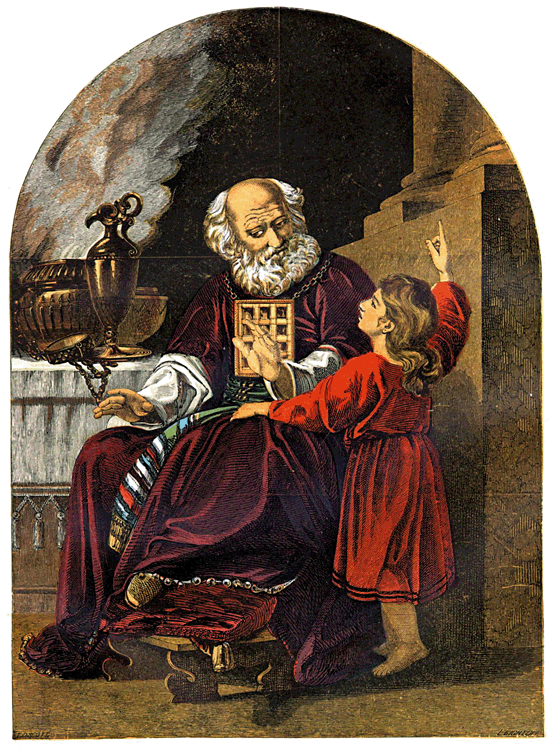
1 Samuel 2:18, 26. But Samuel ministered…grew in stature, and in favor. Even as the house of Eli was falling due to spiritual lassitude, at the same time YHVH was raising up another individual to carry on his work. What this teaches us is that despite the failings of individual, his purposes will go on, even if he has to raise others up to take the place of those who once did his work, but either they or their offspring have strayed from his paths of righteous ness.
1 Samuel 2:27, Then a man of Elohim came to Eli. YHVH always warns his lukewarm and backsliding servants an opportunity repent of their errant ways before he brings judgment upon them. This is his mercy and grace in action, it is also so that no one can accuse ever Elohim of acting unjustly.
1 Samuel 2:29, Honor your sons more than me. Eli placed loyalty to his sons over loyalty to Elohim. As much as righteous parents want to see their children serve and obey YHVH, if they refuse to do so, especially if they hypocritically claim to be ministers of Elohim, while dishonoring him by their actions, parents cannot condone their children’s actions. Tough love demands that parents lovingly correct their children, even adult ones, and if they refuse, then parents must choose to obey Elohim over acquiescing to the unrighteous actions of their offspring. Eli failed to stand up to his sons, and to relieve them of their Levitical duties, and this brought the judgment of Elohim upon both Eli and his sons.
Make yourself fat. To many modern pastors are like Eli in that they live off the fat of the land—off of people’s tithes and offerings, and many do very little work for it. YHVH elsewhere condemns these fat shepherds (see Ezek 34). In fact, may of today’s pastors are literally are obese just like Eli (1 Sam 4:18). YHVH will not tolerate false, hireling shepherds (1 Sam 2:36 cp. John 10:12–13).
1 Samuel 2:30–34, Then YHVH Elohim of Israel says. This passage contains one of the worst condemnations and judgments from YHVH of any minister in the Bible. YHVH warned Eli again and again to repent and to take a strong stand against the evil going on in his family, but he was too complacent in his secure ministerial position to heed the warning of Elohim from the prophet of Elohim and from the young Samuel (in the next chapter). The spiritual sloth and the lack of fear of Elohim on Eli’s part was especially grievous, since he was not only the high priest, but the judge or leader of Israel for 40 years (1 Sam 4:18), and, thus, his lifestyle and actions influenced the whole nation of Israel for good or for bad. Elohim holds to a higher level of accountability those to whom he has given greater positions of power and influence. If they obey him, they will receive a greater reward, but if they disobey him, they will receive a great condemnation.
1 Samuel 2:35, A faithful priest. Samuel was an Ephraimite (a resident of the territory of Ephraim, but also a Levite; see 1 Chr 6:1, 16, 28) and a priest (cohen).
1 Samuel 3
1 Samuel 3:1, The word of YHVH was rare in those days; there was no widespread revelation [open, prophetic vision]. Into this environment of spiritual laxity in Israel, YHVH introduced Samuel, a man who was single-handedly responsible for the spiritual revival of that nation.
The regime of Eli and his wayward sons can be likened to the state of the church in these last days in America. Eli was a weak, ineffectual, compromised, lukewarm, fat and blind leader spiritual leader. The modern church is filled with leaders who, like Eli, have little or no backbone to stand up to evil, to denounce sin, to refuse to toy with spiritual compromise, to stand up to false leaders, and to call the people to repentance. Rather, they are in the ministry simply for their own personal gain and physical gratification.
On the surface, Eli looked good. He sported the title of High Priest, along with all the trappings and regalia that came with that exalted office including a glorious church building, ceremonial accoutrements and ecclesiastical attire. He even had “throne.” Yet at the same time, he was blind and grossly fat. This is the spiritual state of many leaders in the church today. For their own benefit, they have plundered the people they lead becoming financially well off in the process. YHVH denounces these phony and carnal shepherds in Ezekiel 34, who feed themselves at the sheep’s expense caring little or nothing for them. This was the sin of Eli’s sons who not only forcefully plundered the people for their own gain (1 Sam 2:2–17), but fulfilled their sexual appetites, as well, at the people’s expense (2 Sam 2:22–23).
Yeshua rebukes these same hireling shepherds who put their own interests ahead of the sheep they are supposed to care for (John 10:1–13). Likewise, the apostles of Yeshua who literally laid down their lives for the sheep and the spreading of the gospel had no use for counterfeits who profited at the people’s expense. Paul denounces those who peddle the word of Elohim (2 Cor 2:17), and who are greedy for money (Tit 1:11 cp. 1 Tim 3:3, 8; Tit 1:7; 1 Pet 5:2).
Is it any wonder that the word of YHVH was rare in the days of Eli and his sons? How can a righteous and holy Elohim endure dealing with such a people? Remember his aversion to those in Laodicea who viewed themselves as quit well off, thank you very much, but were in reality, from Elohim’s perspective, miserable, wretched, naked, poor, deaf and blind. Unless they repented of their sin, he was ready to vomit these lukewarm believers from his mouth (Rev 3:14–21).
But in the middle of the spiritual morass of Eli’s leadership in Israel, YHVH raised up a pure and innocent vessel in Samuel. YHVH started moving powerfully in the little Samuel’s life, when he began to speak to him audibly and by vision. This small start was the beginning of national revival in Israel that eventually led to David becoming king and a temple being built in Jerusalem—the pinnacle of Israel’s glory days as a nation.
In reality, it all started with a faithful, praying mother who, after having her prayer answered for a son, willingly gave up that son, as a thank offering, to YHVH’s service. What is the lesson here? Even in the midst of the hopelessness of spiritual societal darkness, YHVH can raise up a Hannah and a Samuel who will take the nation by storm for him! All YHVH needs are a few committed, praying, faith-filled servants, who are sold out for him, and who remain pure and undefiled from the spiritual pollutions around them. Are you willing to be such a person?



